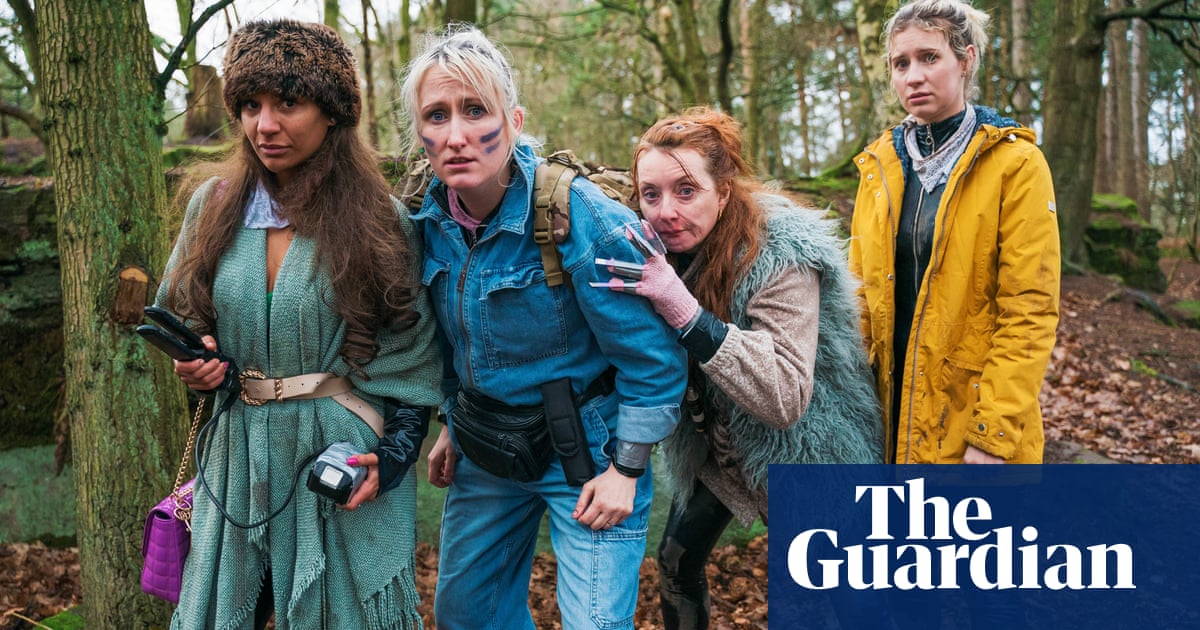
Former and current members of the Indian military have criticised a Netflix film for portraying the armed forces as rife with gender discrimination.
The Indian Air Force (IAF) has written to an Indian censor board, as well as Dharma Productions, which produced the film, and Netflix to complain that Gunjan Saxena: The Kargil Girl “presented some situations that are misleading and portray an inappropriate work culture especially against women in the IAF”.
The film is a biopic of retired flight lieutenant Gunjan Saxena, one of the first female pilots to be commissioned into the IAF. It was intended to inspire women to become pilots but has stoked controversy since it was released earlier this month.
The film runs with a disclaimer about taking creative liberties and dramatising events.
Writing on New Delhi TV blog, Saxena, who flew helicopters, said there was no discrimination at organisational level when she joined the IAF and that she “got equal opportunities all the time”.
But she defended much of the film, saying that she “also combated the difficulties of prejudice and discrimination at the hands of a few individuals for being a woman”.
“To deny it completely speaks of a feudal mindset and undermines the grit of women officers,” she said.
Former and current members of the armed forces have questioned the portrayal of life in the services.
In one scene, a flight commander rushes into a briefing room and orders a newly commissioned Saxena to arm wrestle a male colleague. When she loses, he barks: “You’re weak, Gunjan, and there is no place for weakness in defence services.”
The commander adds: “Our duty is to protect the country, not to give you equal opportunity.” No one in the room stands up for Saxena. Earlier in the film, male officers are shown declining to fly with her in case she cries and questioning her abilities.
“The entire arm-wrestling sequence was completely unbelievable, as are many other parts of the movie,” said Archana Kapoor, who was among the first cohort of female pilots to join the IAF in 1994. She served for 10 years and said the film did not reflect her experiences.
“I can tell you with conviction that in no part of the forces would such a thing be allowed inside the work environment.”
Kapoor admitted that in her early years in the force she served with a senior officer who didn’t want his flights planned with her. “He just felt a bit apprehensive, as until then he wasn’t assured of my skills.” But once they were thrown together on a military exercise, he realised that she was capable and apologised for his previous comments.
Bindu Sebastian, who was also among the initial batch of female pilots, said: “There was no discrimination when I joined, only an initial reluctance in the acceptance of lady officers into the unit by one or two male officers.” It was new territory for both women pilots and a male-dominated force, so this was expected, she added.
Kapoor recalled that the handful of sexist officers who did not believe in her abilities “were the same men who preferred to see their wives as homemakers, instead of career women”.
Seema Paul (name changed to protect identity), who has been in the army’s engineering corps for 14 years, said she believed it was important for women to demonstrate that they are as capable as men of doing the job.
“As in any other profession, it is incumbent upon new entrants to prove themselves,” she said. “Once that is established, she is treated on a par with her male colleagues.”
Retired IAF group captain N Kambhampati said that people who joined the armed forces came from diverse cultural backgrounds. “Some may be old-fashioned, have roots in male-dominated communities or may have grown up with deep-rooted caste dynamics,” he said. But training wore away such attitudes, he said.
Women were first inducted into India’s armed forces in non-combat roles in 1992, as short service officers. Prior to that, they were only employed in the medical and nursing corps.
Following a supreme court ruling earlier this year, women in all military services are now granted permanent commissions, making them eligible for the same command positions as their male counterparts. It makes the career more attractive for women, who can now continue serving until retirement.
However, Saxena’s biopic has been a dampener for 24-year-old Srishti Shukla and her friends who plan to pursue careers in the armed forces.
Shukla, who is from a village in northern Indian, said: “There is a different set of rules for men and women in my family and I’ve lived with the hope that once I join the defence services, I’ll get an equal platform with men, at least professionally.” She said the film was “very disheartening”.










